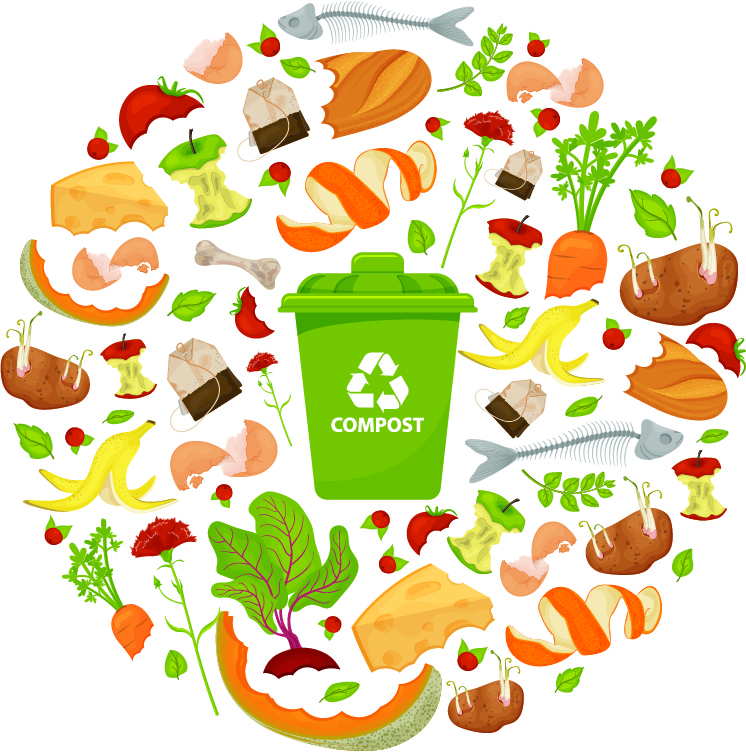Composting is a great way to recycle kitchen scraps and create nutrient-rich additives for your backyard garden. While it’s a pretty simple process, there are still a couple things to know before you get started.
Find the Right Spot
The first step is to find a suitable place to keep items for your compost pile. You can store scraps in the kitchen for a day or two before transferring them outside. A bowl with a lid works great, just keep it somewhere that you see often so you don’t forget to take it out! Outside, you want to find a place that is shady and close to a water source such as the garden hose.
Make sure you can secure your pile from animals — wildlife in the Black Hills can be attracted by some of the produce you’ll be using for compost. Hardware stores usually sell pre-made bins you can use, or simply dig a hole in the ground you can cover securely.
The Dos and Don’ts of Composting
Now that you have a location picked out, the next step is knowing what you can and can’t put in a compost pile. There are two categories of material you can compost: brown matter and green matter. Brown matter is mostly dry woody materials like leaves and plants. Green matter is what you’ll get in your kitchen, like vegetable scraps and coffee grounds.
You’ll want mostly brown matter; start by adding a thick layer to the bottom of your compost pile. Next, add a thin layer of dirt from your yard followed by a layer of green matter. The overall ratio should be three parts brown matter to one part green. Repeat this process if you have more materials. Add some water — it should feel moist but not soggy — and let your pile sit.
Once or twice a week, stir up your compost with a shovel and add new material if you have it. If it feels warm or steamy when you stir it up, you know it’s working! If it starts to smell bad, however, there’s something not quite right. Usually this means you have too much green matter or not enough air. Add some more brown matter and stir it up. Your compost is on its way to balanced harmony when it starts smelling like plain dirt.
Like all things involved in gardening, a healthy compost takes a while to mature. Depending on the material you put in, it can take anywhere from two to four months to have usable compost. If you’re starting seeds indoors, getting your compost pile going at about the same time should ensure you have some ready when your seedlings are ready to plant outside.
Things you can Compost
Brown:
- Dead leaves
- Branches and twigs
- Egg shells
- Shredded newspaper
- Sawdust
- Corn stalks
Green:
- Loose tea and/or tea bags
- Fruits
- Veggies
- Old flowers
- Grass clippings
- Coffee grounds
Things to avoid:
- Meat
- Coal or charcoal ash
- Citrus fruit peels
- Dairy
- Cooking oils
- Diseased plants/weeds
WORDS: ASHLEY JOHNSON

